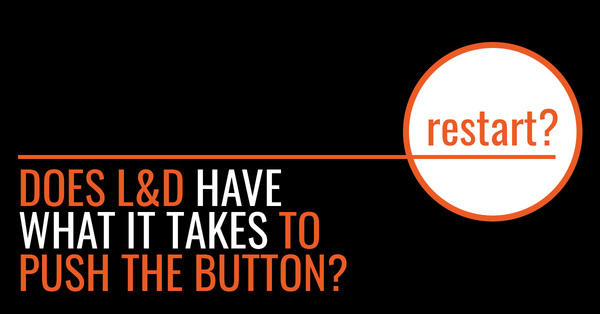About half of the connections on my LinkedIn network work in Learning and Development or Organisational Development.
2020-2021 is going to be the year where we see whether we are up to the task of commandeering sufficient resources from our stressed organisations to ensure we build leadership and expertship capability despite operating in the Year of Living Nervously.
Hitting the Stop Button
Five months ago, pretty much everything to do with leadership and expertship development stopped.
The first phase of COVID shut down was no travel, then the lockdown and social distancing.
We are now in the second phase of COVID – living with uncertainty. This period will be characterised by tactical shut downs, inter-state border restrictions, and more heavily policed social distancing.
This second phase is – according to most commentators – going to be around for a long, long time – certainly until March next year.
Many predict the third phase – Post COVID – will arrive until 2022.
Despite all this uncertainty, one thing is certain in our industry: any national development programs will need to be delivered virtually, or not at all.
So what do we do in these circumstances, as a profession and an industry, about re-starting these development programs?
Why might organisations NOT hit the re-start button?
We see three reasons why the senior leadership of medium to large organisations will not hit the re-start button:
-
Their revenues have been so badly affected, they have no money for such programs delivered externally, and internal staff – those who survived – are flat out on COVID-support projects and have no capacity; or
-
They don’t believe virtual learning is as effective as face-to-face, and therefore not worth the money or the effort; or
-
They don’t believe that development programs are a priority right now or in the near future.
In some organisations it may be, of course a combination of all three.
The first reason above (huge business disruption and losses) is difficult to counter, but probably applies at only 30 per cent of all organisations.
The second reason senior leaders might push back on hitting the re-start button – that virtual programs cannot be delivered effectively – should be easy to counter.
Of course they can be. Everyone is now used to video and break-out rooms, learning portals, virtual materials, and facilitators and trainers in most organisations – like ours at HFL – have quickly adapted to new delivery techniques and technologies.
The only elements that are harder to replicate from the face-to-face programs are the incidental connection and learning via networking.
However, we’d argue that with proper planning and a large slice of creativity, we can produce most if not all, of the beneficial impacts of networking.
The third reason – now is not the right time – should be, in my opinion, aggressively countered by OD and L&D teams.
Now is exactly the right time for critical investments in talent development, particularly among super-important leaders and top technical experts. These groups are the most stressed, and vulnerable than they have ever been. They need help is shaping new leadership and expertship behaviours that respond to, and are suited to this second COVID phase.
They need support in building teamwork and connection virtually. They need to elevate their skills in setting performance expectations and delivering feedback online.
They need to be able to connect work with purpose more effectively than ever before. They need skills to manage the exhaustion of their teams and themselves (I know many organisations have addressed this issue on an individual basis, but are they skilling up their leaders?)
Will L&D and OD argue for the restart?
I worry whether as a profession we have the advanced influencing skills – and courage – to make this business case effectively to distracted senior leadership teams. Have we got the business savvy to make a compelling business case to the business? We owe it to ourselves, and our top talent, to deliver.
Will we? Or will we hunker down, acting on tactical requests, and wait for things to return to normal.
If we do the latter, the implications for the learning profession I think will be as profound as they will be long lasting.
Already significant job losses in our sector will grow – if little or nothing is happening, what are these roles for? The opportunity to articulate the concept of talent strategy and talent development programs being a competitive advantage (even more so in a crisis) will be lost, and talent development will again be relegated as a ‘nice to have if we can afford it’.
Most external consultants will need to find a new profession. If we don’t act now, most of these impacts will be will us by December.
The stakes could barely be higher. Time could not be more precious.
It’s the talent profession’s pivotal moment – are we value creators or cost centres? For the sake of my livelihood, and those of my team, I hope that it is the former.
Want to join the conversation? We’re discussing this post on LinkedIn




